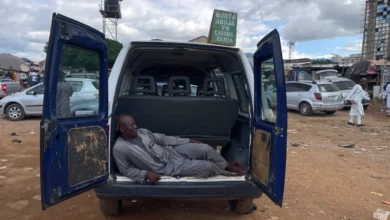Arab politicians and financiers at the World Economic Forum in Jordan called on Saturday for a huge injection of cash to narrow the inequalities that led to the Arab Spring revolts against authoritarian regimes across the region.
Days after the killing of former Libyan dictator Muammar Qadhafi, senior figures said a home-grown version of the Marshall Plan was needed in the wake of the revolts, which have raised people's hopes for swift economic improvements after decades of corruption and mismanagement.
The proposal was the most specific put forward by senior figures meeting at a luxurious Dead Sea convention center to try and chart a new economic course for the region after its most sweeping upheaval since colonial powers divided most of the Middle East following the downfall of the Ottoman Empire.
Under the Marshall Plan, large sums flowed into Western Europe to rebuild the continent, restore productivity and prevent US allies from falling under the Soviet sphere of influence.
"I am afraid that Arab Spring could turn into an autumn if the issue of social justice is not achieved. A Marshall Plan is needed," said Hassan al-Boraei, Egypt's labor minister.
"The old model of relying on state employment and big projects is no longer viable," Boraei said, adding that Egypt needed to find jobs for 950,000 people entering the workforce annually, with unemployment running at 12-17 percent.
Outrage against autocratic rule and associated nepotism and corruption sparked a democratic revolution in Tunisia in December that cascaded into what has become known as the Arab Spring.
So far, the revolts have toppled the leaders of Tunisia, Egypt and Libya, with mass protests continuing in Syria and Yemen, threatening their autocratic presidents.
Antiquared policies
"If the Arab Spring hopes to achieve anything it is to attain good governance. This does not necessitate only democracy and freedom but social justice, meaning economic policies that meet popular aspirations," said Arab League Secretary General Nabil Elaraby.
Prominent banker Ibrahim Dabdoub said the proposed "Arab Marshall Plan" could be funded by Gulf petrodollars and regional development banks, as there is little hope for major funding from Western nations dealing with their own economic trouble.
"This region needs 85 million jobs … and a Marshall Plan with the help of the World Bank and the International Monetary Fund has become a pre-requisite of development," said Dabdoub, a Palestinian who heads the National Bank of Kuwait, the country's biggest lender.
Libya's Prime Minister Mahmoud Jibril was more skeptical about whether money alone would improve the region's lot, saying "the problem of the Arab world is not a question of money but the management of money."
Jibril also said on Saturday that Libyans should be allowed to vote within eight months to elect a national council to draft a new constitution and form an interim government.
Making a keynote speech at the conference, Qatar's Prime Minister Sheikh Hamad al-Thani said economic models had only benefited ruling classes and their cohorts, sparking the Arab Spring.
Qatar, an absolute monarchy with one of the world's highest per capita incomes, has played an international role beyond its tiny size by virtue of its natural gas wealth and ownership of the satellite al-Jazeera channel.
Al-Thani did not address the issue of funding but said Arab economic policies that rely on attracting investment in tourism and real estate while ignoring corruption and the need to raise productivity and education standards have largely failed.
In recent years Arab states have tried to emulate the 'Dubai model', encouraging the setting up of big holding companies tied with the ruling hierarchy that were awarded privatization deals and embarked on large property ventures while public corruption deepened and unemployment remained stubbornly high.
Asked about his advice for Arab rulers, al-Thani said: "Don't fight to stay in your position. What sort of power (will) you have after killing your own people?"




